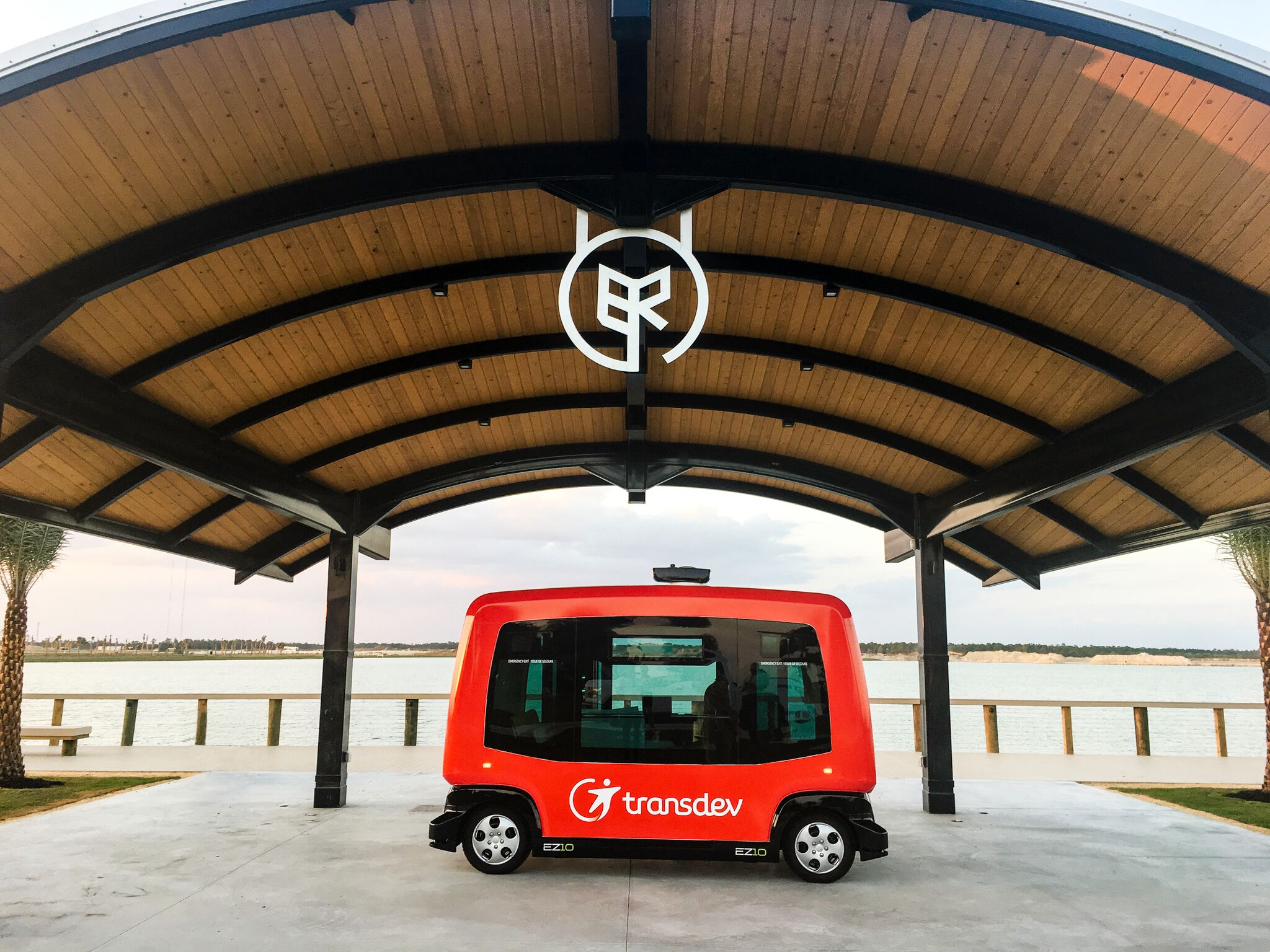Building a Mobility Ecosystem From Scratch
November 6, 2017 — Blog
In a new town in Southwest Florida, we are all about to discover what happens when you build an entire 21st Century Mobility Ecosystem from scratch. And the results could shape how people access transit services for decades to come.
This month in the solar-powered, sustainable community of Babcock Ranch, Transdev will begin operating the first autonomous network in North America. Two autonomous vehicle (AV) shuttles will start taking prospective homebuyers from the downtown office plaza to model homes. Once we reach a tipping point with the new population, the AV shuttles will start transit services along the 18,000-acre development near Fort Myers. At its peak, Babcock Ranch could serve as many as 50,000 residents with their own zip code and congressional representative.
The goal is to eventually deliver subscription mobility—mobility as a service. But rather than squishing this “next step” in mobility into cities that are heavily dominated by cars, the long-term vision of this town is to eliminate, completely, the reliance on automobiles from the beginning.

“We recognize that progress comes in increments,” said Syd Kitson, Chairman and CEO of Kitson & Partners, the developers behind Babcock Ranch. “Americans are not going to go from one car for every driver to no cars for every household overnight. We start by making cars just one of many options for getting around town. When people can walk, bike, catch a shuttle, use their handheld device to summon an on-demand autonomous vehicle, or utilize a shared vehicle service for trips off-site, they will quickly realize they don’t really need their own car.”
What will it take for people to surrender their cars they have long relied on? To us at Transdev, the tipping point will be when the amount of money spent on a car just simply doesn’t make economical sense in lieu of an abundance of options to move throughout town. That progress will certainly come in stages, but the Babcock Ranch experiment is exciting to behold.
Even more interesting is that the entire town will serve as a living laboratory for how subscription mobility should be delivered and what residents require to make the switch from automobiles to shared, on-demand community transit. That data, combined with the detailed demographics for the community, will change how companies and communities present transit options in the future. More bikes or more shuttles? Better paths or wider sidewalks? More traditional, fixed-route services with common origins and destinations or flexible route scheduling with on-demand ease?
One town is about to tell us.
Yann Leriche will be a speaker on the panel “Streets Are For People: Multi-Modality and Safety” on November 16 during the Cities in Motion Leadership Conference. Join Yann at LA CoMotion by completing your registration here.